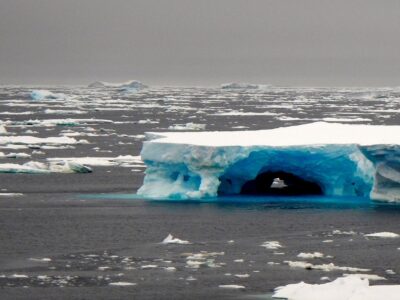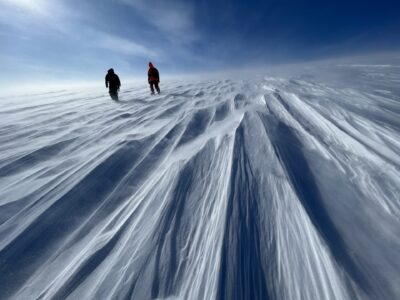
By Dylan Adler
The Alaskan Arctic. Home to indigenous communities, endangered species, and billions of dollars worth of oil. Or so the oil industry thought. On Sept. 28, Royal Dutch Shell announced that it would abandon all offshore oil drilling projects off the Alaskan coast for the foreseeable future.
Low oil prices and high operating costs had already hurt Shell, and this decision comes after the company found insufficient oil and gas in one of its exploratory wells. The Burger J exploration well was drilled to a depth of 6,800 feet in Alaska’s Chukchi Sea, and was expected to help locate the rich oil reserves under the sea floor. As a statement from Shell explains, “This decision reflects both the Burger J well result, the high costs associated with the project, and the challenging and unpredictable federal regulatory environment in offshore Alaska.”
This announcement may have historical significance for the future of the oil industry, environmental activism and United States petroleum extraction regulation. Alaska is also home to large mammals such as whales, seals, polar bears and walrus, as well as numerous bird and fish species. The importance of the Alaskan Arctic ecosystem to global biodiversity has environmental groups fighting hard against the oil industry to stop drilling in the Arctic Ocean.
Some Alaska Native communities, who make up a majority of the inhabitants of northern Alaska, are also concerned about damages to the environment on which their lives depend. Preventing oil drilling in Alaska may seem an unlikely prospect, given that 80 percent of Alaska’s economy is based on petroleum extraction; but Shell’s announcement may be a sign of changing times.
Shell has been having problems with the Alaskan Chukchi Sea project since it began. In 2007, the company spent $2 billion for permission to explore oil reserves in Alaskan federal waters, and has since spent an additional $5 billion on the exploration. Shell viewed the Alaskan Arctic as one of the few remaining unexplored oil frontiers, and invested a lot of effort into the long-term profits exploration would yield. But the company faced setbacks in the forms of shipping and oil rig problems. In 2010, the BP oil spill in the Gulf of Mexico prompted the Obama administration and the Department of the Interior to tighten federal environmental and safety regulations for drilling. The lackluster Burger J well result was the final straw for Shell’s investment in Arctic Ocean drilling.
This was not the news the oil industry wanted to hear. “That was a huge disappointment not only for Shell but also for the industry. This has been a saga. Bad timing, bad planning, bad circumstances. It was not meant to be. Everything that could go wrong went wrong.” explains Fadel Gheit, an oil analyst for Oppenheimer & Co.

Those who fought against the Arctic drilling are hailing Shell’s decision as a victory. Environmental groups, such as the Wilderness Society and Greenpeace, opposed the drilling because of the damaging effects an oil spill would have on the pristine nature of the arctic ecosystem. The United States is ill prepared to deal with an oil spill in the Alaskan Arctic. There have been few studies done on the effects of oil spills in icy conditions, mostly because in order to accurately study it, scientists have to spill oil into the ocean. The scarcity of studies results in a lack of information on oil properties in icy waters.
To make matters worse, the first responder to a spill, the U.S. Coast Guard, has a limited presence in the Arctic region of Alaska. The Coast Guard would not be able to respond quickly, and would require additional support.
Further, fish and marine mammals are the primary source of sustenance for Native Alaskans, and there are no existing plans for their protection or rehabilitation following a spill.
Arctic drilling itself would also further exacerbate climate change impacts. Burning oil and natural gas releases carbon dioxide into the air, which prevents heat from escaping the atmosphere, increasing the global temperature. Climate scientists have demonstrated that this global temperature increase will have large-scale environmental effects, such as sea level rise and biodiversity loss. Climate change activists staged many protests to Shell’s drilling; including one where participants paddled kayaks to try and block Shell’s oil rig on its journey to the Arctic.
Among Alaska Native communities, opinions on Arctic drilling are not one sided. The Arctic Slope Regional Corp, an Alaska Native corporation, supported the drilling with the agreement that they would receive a small share of Shell’s Chukchi oil production. Leaders of the group said they invested in Shell’s venture because they were looking for ways to sustain their local economies that were not reliant on whaling and fishing.
However, some members of the Iñupiaq community still opposed Shell’s activities, believing that it is too risky to have Shell drill for oil when they depend on ocean life to survive. Other Alaska Native communities were concerned that the noise of drilling would disrupt the migration patterns of whales, walruses and seals. Any oil spill from Shell could come ashore in a coastal Alaska Native village. Alaska Natives hold strong traditions of hunting marine mammals, which hold an important place in tribal culture. If drilling negatively affected these animals, it would hurt Alaska Natives’ livelihood, which is primarily based on subsistence hunting and fishing.

President Obama and his administration have a mixed relationship with Arctic drilling regulation. In May of this year, the Obama administration approved Shell’s request to commence the exploratory drilling for oil in the Chukchi Sea. The administration argued that Shell would be held to strong safety standards. “We made it clear that Shell has to meet our high standards in how they conduct their operations—and it’s a testament to how rigorous we’ve applied those standards that Shell has delayed and limited its exploration off Alaska while trying to meet them,” Obama said in response to criticism.
This surprised and angered environmental activists, because Obama had been ramping up actions to combat climate change. The president made a historic trip to the Alaskan Arctic in September, becoming the first sitting president to visit the region. He stressed the importance and beauty of the Arctic ecosystem, and emphasized his strong commitment to combating climate change. He also emphasized the value of respecting indigenous culture and the rights of Alaska Natives.
Bill McKibben, founder of 350.org, described Obama’s trip to Alaska as a “bad contradiction” with his administration’s policies on drilling permits. McKibben and 350.org work to build global grassroots environmental movements to help bring carbon dioxide concentrations down from 400 parts per million to 350.

In the weeks following Shell’s announcement, it seemed that the Obama administration had changed its mind on the value of Arctic drilling. On Oct. 16, citing Shell’s decision and low oil prices, the Department of the Interior canceled the sale of two Arctic drilling leases and denied two oil companies’ requests to extend their current leases. The Obama administration also canceled all auctions for drilling rights in the Chukchi and Beaufort seas.
“In light of Shell’s announcement, the amount of acreage already under lease and current market conditions, it does not make sense to prepare for lease sales in the Arctic in the next year and a half,” Secretary of the Interior Sally Jewell said.
Environmentalists applauded the decision, while supporters of Arctic drilling said the administration’s position runs counter to the energy interests of the United States. Seven companies still hold drilling rights to the Chukchi Sea, but none other than Shell has started exploratory drilling. Shell’s decision and loss of revenue may induce other companies to abandon Arctic drilling, once thought to be the next big frontier for oil. Offshore drilling has also decreased in Canada, Greenland and Russia. However, if oil prices were to rise, it may make Arctic drilling enticing once again.
Dylan Adler is a student in the Masters of Public Administration-Environmental Science and Policy program and an intern at the Columbia Climate Center.



